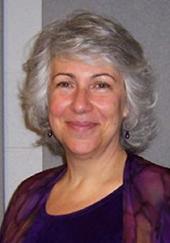
Thea Tlsty, PhD
UCSF
Pathology, Box 0511
513 Parnassus Avenue, Room HSW-513
San Francisco, CA 94143
United States
Dr. Tlsty has over 25 years of experience in studying human cells and the earliest responses to injury. She has lead multi-disciplinary groups that address both the epithelial and stromal contributions to wound healing and malignancy. The model systems the Tlsty laboratory has developed and the applied translational insights obtained have great potential to contribute to clinical utility.
Our work was the first to develop biomarkers for risk stratification of ductal carcinoma in situ, a pre-malignant lesion of breast cancer. Our recent work has identified molecular aspects of stromal-epithelial stress responses and the interactions that facilitate tumor progression in breast, prostate and other cancers. These analyses have enabled us to identify cell-extrinsic consequences of epithelial stress that lead to the activation of pro-tumorigenic stromal phenotypes. One of the most profound phenotypes involves the activation of a multicellular stromal program shared by high mammographic density and desmoplastic tumor tissues, characterized by repression of CD36. While studying these interactions we unexpectedly found a rare population of cells within disease-free tissue that has the potential to attain pluripotency. These cells have the ability to create functional tissues of all three germ layers which we hypothesize may be involved in metaplasia and inflammatory diseases. A single pluripotent cell can generate beating cardiomyocytes, lactating breast, bone, cartilage, vasculature, adipocytes, pancreas, and intestinal cells. We hypothesize that these cells may be the cell-of-origin for metaplastic cancers and provide insights for the identification of novel therapeutic targets. Similarly, these cells may be responsible for a wide collection of phenotypes that are initiated by chronic stress and defective in a wide spectrum of cancers. Our current studies, couched in a large multi-disciplinary, multi-investigator grant, are aimed at investigating the role of chronic inflammation in increased cancer incidence with the intent of developing preventive and therapeutic solutions.
- Pan D, Roy S, Gascard P, Zhao J, Chen-Tanyolac C, Tlsty TD. “SOX2, OCT3/4 and NANOG expression and cellular plasticity in rare human somatic cells requires CD73“Cell Signal, 28: 1923-1932, 2016
- Gascard P, Tlsty TD. “Carcinoma-associated fibroblasts: orchestrating the composition of malignancy“ Genes Dev 30: 1002-1019, 2016
- Molinaro AM, Sison JD, Ljung BM, Tlsty TD, Kerlikowske K. “Risk prediction for local versus regional/metastatic tumors after initial ductal carcinoma in situ diagnosis treated by lumpectomy“ Breast Cancer Res Treat 157: 351-361, 2016
- DeFilippis RA, Fordyce C, Patten K, Chang H, Zhao J, Fontenay GV, Kerlikowske K, Parvin B, Tlsty TD. “Stress signaling from human mammary epithelial cells contributes to phenotypes of mammographic density“. Cancer Res 74: 5032-5044, 2014
- Roy S, Gascard P, Dumont N, Zhao J, Pan D, Petrie S, Margeta M, Tlsty TD. “Rare somatic cells from human breast tissue exhibit extensive lineage plasticity“ Proc Natl Acad Sci U S A 110: 4598-4603, 2013